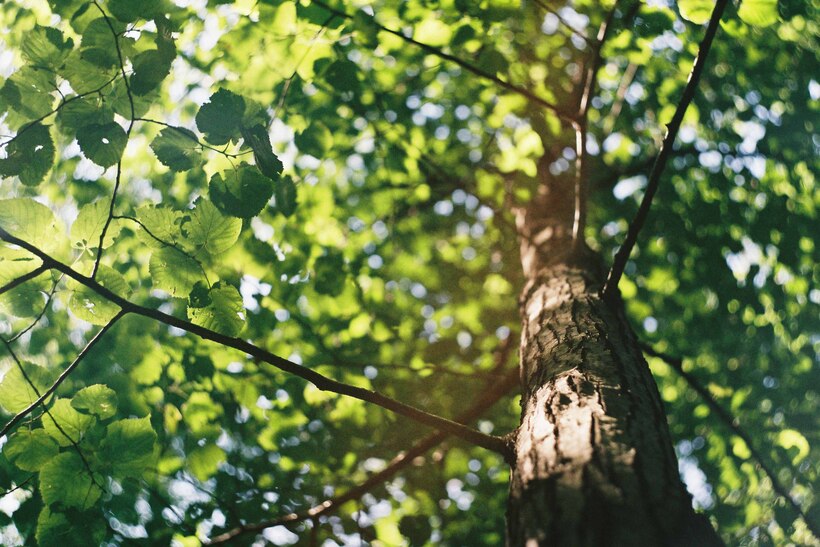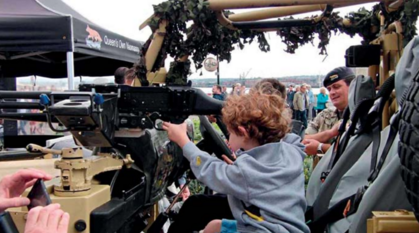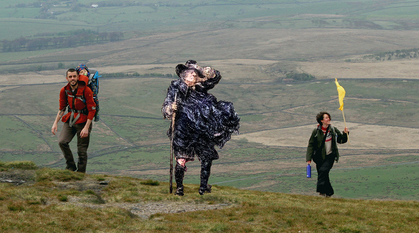Are Sundays more sacred?
Jon Martin explores the faith basis for meeting for worship and challenges the notion that Quakers should always meet for an hour on Sundays.

“Now there were many old people who went into the chapel and looked out at the windows, thinking it a strange thing to see a man preach on a hill, and not in their church, as they called it; whereupon I was moved to open to the people that the steeple-house, and the ground whereon it stood were no more holy than that mountain…" (George Fox, Firbank Fell, 1694)
Quaker ways of worship are not bound by custom or ritual. We are called to find space to listen to the promptings of love and truth which come from that otherly place, wherever we might be. 'God' is found in a forest, field, prison, house or car as much as within the walls of a church. Nothing is set apart or sacred because everything is sacred.
It's one of the reasons Quakers meet in houses, not churches. Quakers were only pushed into houses at all, and away from town squares and fields, due to vicious persecution in the 17th century.
The belief that all is sacred also extends to days. Quaker worship occurs when two or three people gather together regardless of place or time or length. Early Quakers were keen to draw the connection to the early followers of Jesus as described in Matthew 18:20, "For where two or three gather together in my name, there am I with them". Worship is a fluid thing!
If the holiness of every day and every thing is all so engrained in the Quaker tradition, with far deeper Christian roots, why is it that the vast majority of Quaker meetings happen in historical buildings on a Sunday morning for exactly an hour?
Open to community
One answer is that this isn't the case. Find a Meeting on the Quaker website lists all the regular worship times and most of the 'main meetings' are Sunday mornings. But it's only half the story.
I've had the experience of being among Friends only to find myself falling into an impromptu meeting for worship. A Friend recently told me a story about a time when she was sat quietly in a lobby she was joined by a couple of others, strangers, then without realising she found herself giving ministry. There are many more examples such as chaplains in prisons, Quakers in hospitals, with groups of friends, with placards outside fracking rigs and arms fairs – the tradition is still alive!
One meeting you will find on Find a Meeting is Bailrigg, where I worshipped for five years. Bailrigg meet in a multi-faith chaplaincy building, on a university campus, on Monday lunchtime for half an hour's worship. No one model works for everyone but as a student, and later an employee, at the university this model allowed me access to committed belonging in a way that Sunday morning meetings in neighbouring towns didn't. And importantly Bailrigg wasn't a second-class meeting or an outreach initiative; it was a community of Friends as valid as any other. One which equipped me to live, worship and witness in the world as a Friend.
In the 1800s, there were almost as many afternoon or evening meetings as there were morning meetings and at the turn of the 20th century, during another time of great change, Quakers held evening and afternoon meetings with hymns and addresses out in the community. They attracted numbers equal to half of those recorded as members and attenders of 'standard' Quaker meetings. [1,2]
Connecting to the spirit
Many meetings are already experimenting. Besides Bailrigg, I know of extended worship in Lancaster, I was part of a meeting that split out into the garden at Forest Hill and have attended Westminster younger Quaker worship group on a Sunday evening which included a workshop and shared meal with thirty minutes of worship.
There are also meetings experimenting with different days due to the lack of public transport in the area. And when it comes to online meeting for worship, Friends meeting online are perhaps like those on the hillside of Firbank Fell, creating the church community in a space that is available.
None of this is to say that meeting in a fixed location on a Sunday morning doesn't work well and make a lot of sense for many people. Routine in spiritual practice can be valuable but we have to consider who we might leave out if our offer is restrictive, and what insight we miss by not being open to different ways of connecting to the spirit within each of us. Quaker worship can be anywhere, for any length of time, so as that well loved piece of Quaker advice goes; let's live a bit more adventurously.


